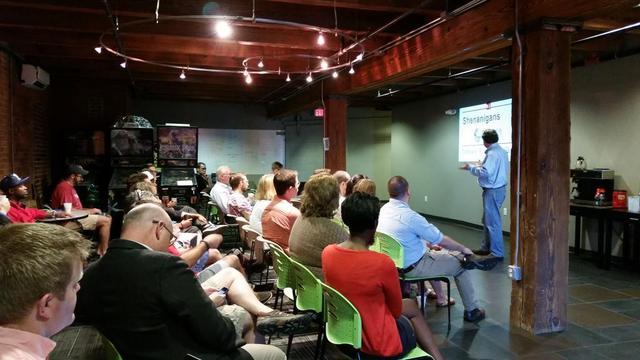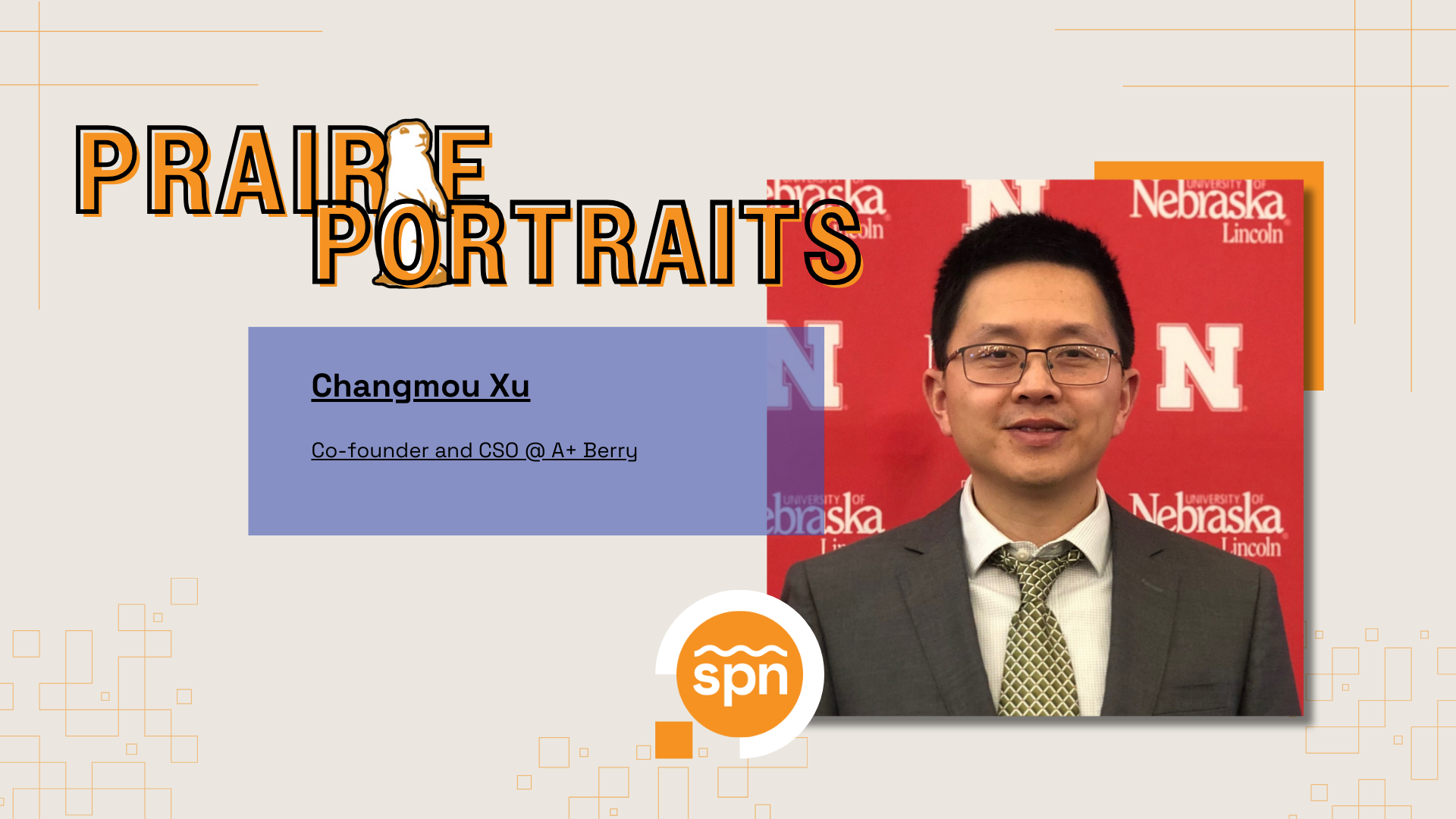
Matthew Wegener, CEO of Presage Analytics, presents at 1 Million Cups in Lincoln on Wednesday.

iSoft president and CEO Matthew Wegener chronicled the germination and current challenges facing Presage Analytics, his latest gamble in software development.
“Nobody likes to hear it, but there’s bacteria everywhere,” Wegener said. “It’s really about the management of it, and trying to stay in front of any potential problems before you cross the threshold and you have to do a recall.”
Wegener told his story to about 30 members of the Lincoln startup community at 1 Million Cups Wednesday.
A joint venture between ISoft Data Systems and NUtech Ventures, a UNL-affiliated technology commercialization company, Presage Analytics is a risk management tool for food production facilities; essentially, software that collects and analyzes data to help forecast and prevent food recalls.
“Lab technicians are out there monitoring sites, taking samples and swabs, whether it’s a chicken producer, a water bottler, whatever,” he said. “Then they want to trend and see where they have biological growth problems.”
NUtech first approached ISoft after two UNL professors, doctors Harshavardhan Thippareddi and Jeyam Subbiah, developed the basic software and a proof of concept for the food safety industry. Both professors had spent time in the private sector prior to embarking on their academic careers.
“As entrepreneurs, we all talk about ideas like they’re parts of our body, that everybody’s got one. But until you do something with it, it really doesn’t matter,” Wegener says. “This was basically a proof-of-concept application that lacked some scalability.”
At the time, ISoft had “kind of plateaued” and was hunting for expansion opportunities, Wegener said, but they weren’t the only ones interested in developing the product.
Other internal parties with NUtech had expressed interest, he said, and Harshavardhan and Subbiah were still toying with the idea of commercializing the product themselves.
Furthermore, though ISoft hoped to expand their revenue streams, the food safety industry was entirely outside their current market segment.
“So we had to go back internally and ask, ‘What do we bring to the table?’” Wegener said. “We had to make a pitch.”
What they offered NUtech was an established company with accessible manpower: a sales and marketing team, a customer support team and a software development team with a record of success and experience with production facilities—not for food, but for recycled vehicles, ISoft’s original industry focus.
“We also had handheld data acquisition tools developed, which was important in this process and something that their process completely lacked—the ability to give lab techs or lab managers a device to use in the lab as they’re taking samples to put in information, take pictures of potential problem areas, stuff like that,” he said.
In December 2013, three years after ISoft’s first meeting with NUtech, Presage landed its first customer, Niagara Bottling, the largest private-label bottled water supplier in the United States. Overall, Wegener says, the partnership has “definitely been a net positive,” but working with a public entity has presented a number of challenges they’d been previously shielded from in the private sector. Applying for grants, for example, had once been a foreign concept.
“Having a private company and being entrepreneurs, we’re looking at trying to be efficient in things. That doesn’t work with a grant,” he said. “It really was a hard struggle to get used to the concept: just lay out a timeline of things you’re going to do, and be as vague as possible about them so you can do whatever actually happens during the course of development. That was a huge challenge to us. It was a great opportunity, but it was a tough pill to swallow.”
And while partnering with two university professors “gives a sense that we really know what the industry is like,” Wegener said, steering them back onto a commercial course took some effort.
“They had been in private industry, but the last 10 years they had been in academia,” he said. “And that’s an interesting mentality, especially when you start picking out what trade shows to go to. Their list of trade shows has this long list of professors who are going to be speaking at them. We go there, and it’s a long list of professors who stop by your booth and talk to you about what you’ve got—but they’re not buying it.”
Wegener’s presentation, which ran nearly double the allotted six-minute format, was followed by a 25-minute Q&A session. In response to 1 Million Cups’ standard last question, “What can the community do to help you?” Wegener paused briefly, then said, “Just stay involved in the entrepreneurial community, cause that’s definitely benefited us.”
Credit: Photo courtesy Kathy Andersen




